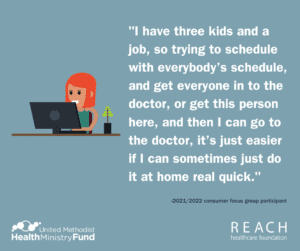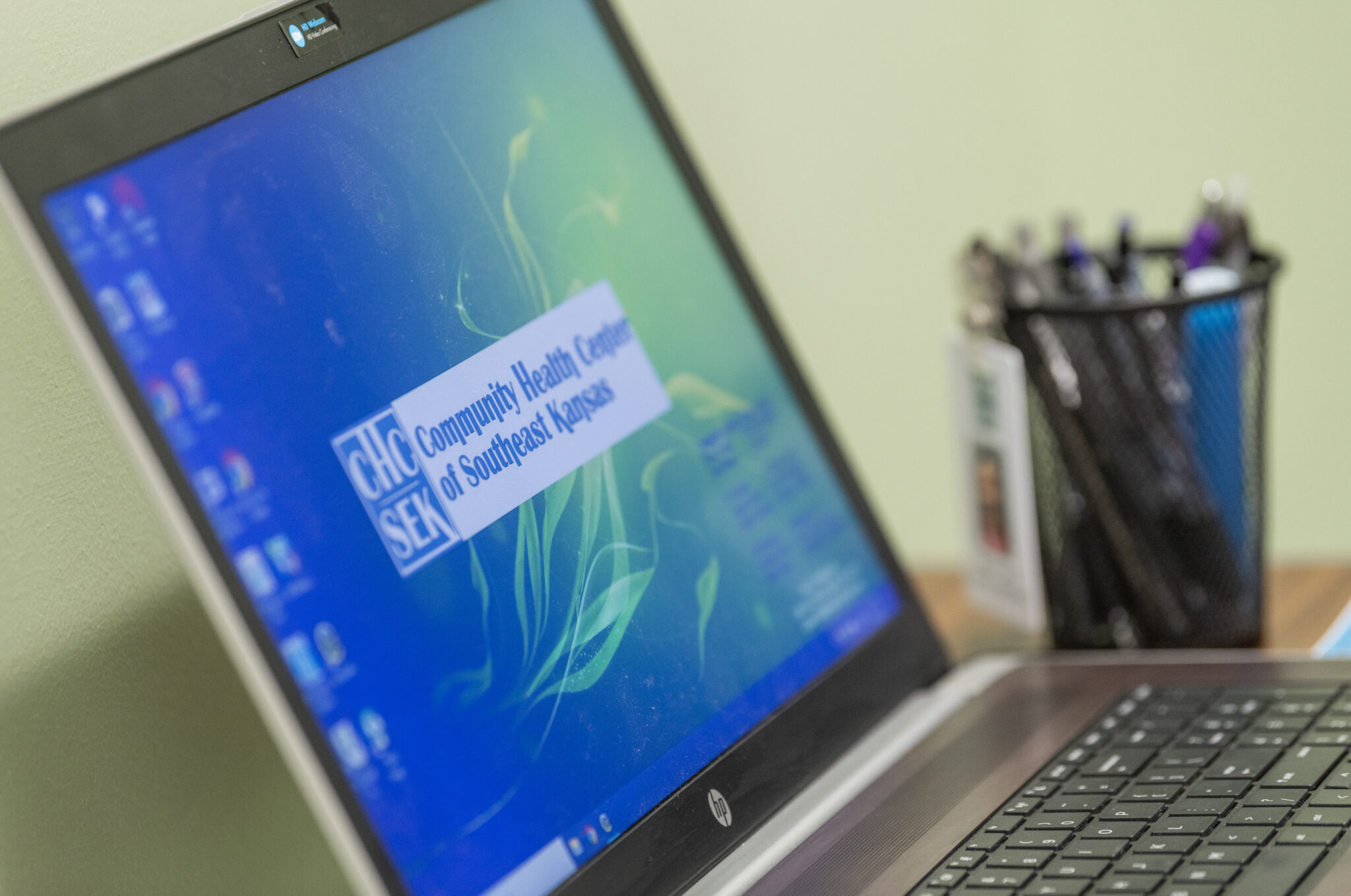Since the onset of the COVID-19 pandemic, telehealth utilization has increased and evolved. To better understand the provider and patient experience, the United Methodist Health Ministry Fund and REACH Foundation commissioned research on telehealth use in Kansas. The research included a statewide survey of health care providers and administrators, as well as in-depth follow-up interviews. The REACH Foundation co-funded a statewide voter poll and consumer focus groups. The provider and administrator study and the consumer focus groups were conducted by the University of Kansas School of Medicine. The statewide voter poll, which reached 800 Kansans, was conducted by GS Strategy Group.
The research shows both providers and patients expect telehealth use to continue, and both groups would welcome more standardization, certainty in public policy, expansion of broadband internet, flexibility in choosing telehealth or in-person services, and respect for clinical judgment.
86% of polled consumers said they support expanding or maintaining telehealth access.
Highlights of key findings include:
- Kansans want telehealth to remain an option for care.
- Consumers, health providers and administrators expressed that telehealth increased access to care and saw benefits in telehealth beyond the COVID-19 pandemic.
- Patients accessed telehealth from a variety of places — smartphone video, computers, tablets and phone calls. Most (84%) wanted Kansans to be able to use their personal devices to access telehealth and 85% stated that access from home should be allowed.
- Patients identified convenience, savings of time and money, and the importance of choice between telehealth and in-person services.

- Patient access to devices and internet connectivity was generally good; the same was true for providers. Patients, particularly those polled, wanted rural broadband access to be improved to strengthen access.
- Providers and patients agreed telehealth will continue to be used in the future. With that, respondents suggest better coordination across technology platforms and more standardization in scheduling processes, dial-in processes and telehealth platforms — as well as greater standardization and certainty in terms of costs and payor policies.
The study also found that when it comes to accessing care, 71% of non-white Kansans would prefer to see a doctor or health care professional who comes from their community, speaks their language, and looks like them.
A September 28 webinar, Telehealth in Kansas: Provider and Patient Experience During COVID-19, discussed the study phases and findings, and included a respondent panel from health care organizations, the Kansas Hospital Association, and community mental health providers in rural and urban/suburban areas.
Read the press release.
Watch the webinar.
Read the Research Brief.
Find the full cross-study report: Telehealth in Kansas During COVID-19. A Status Report.



